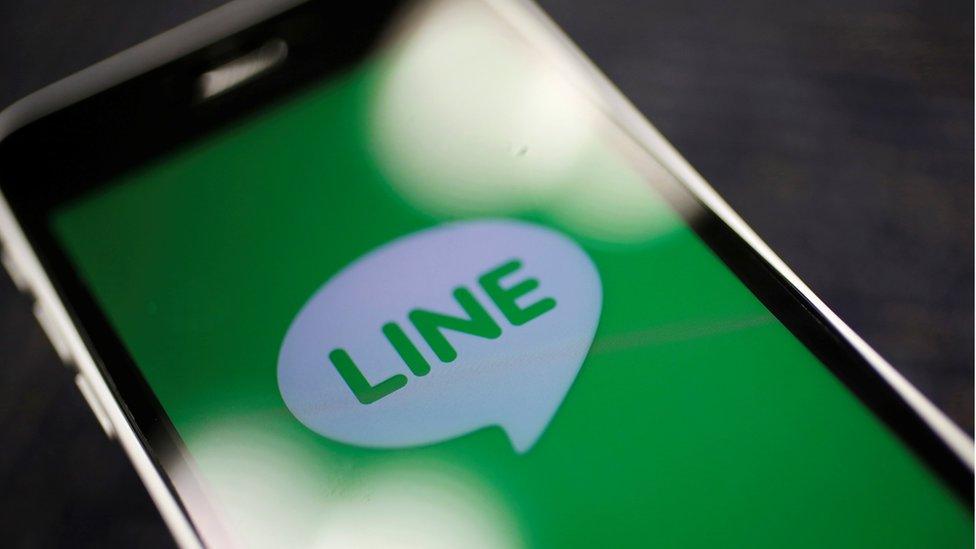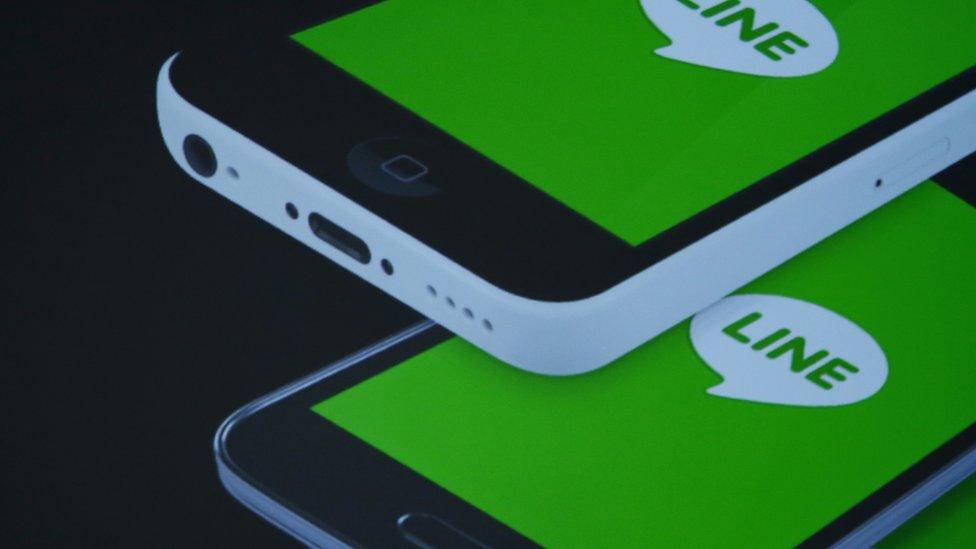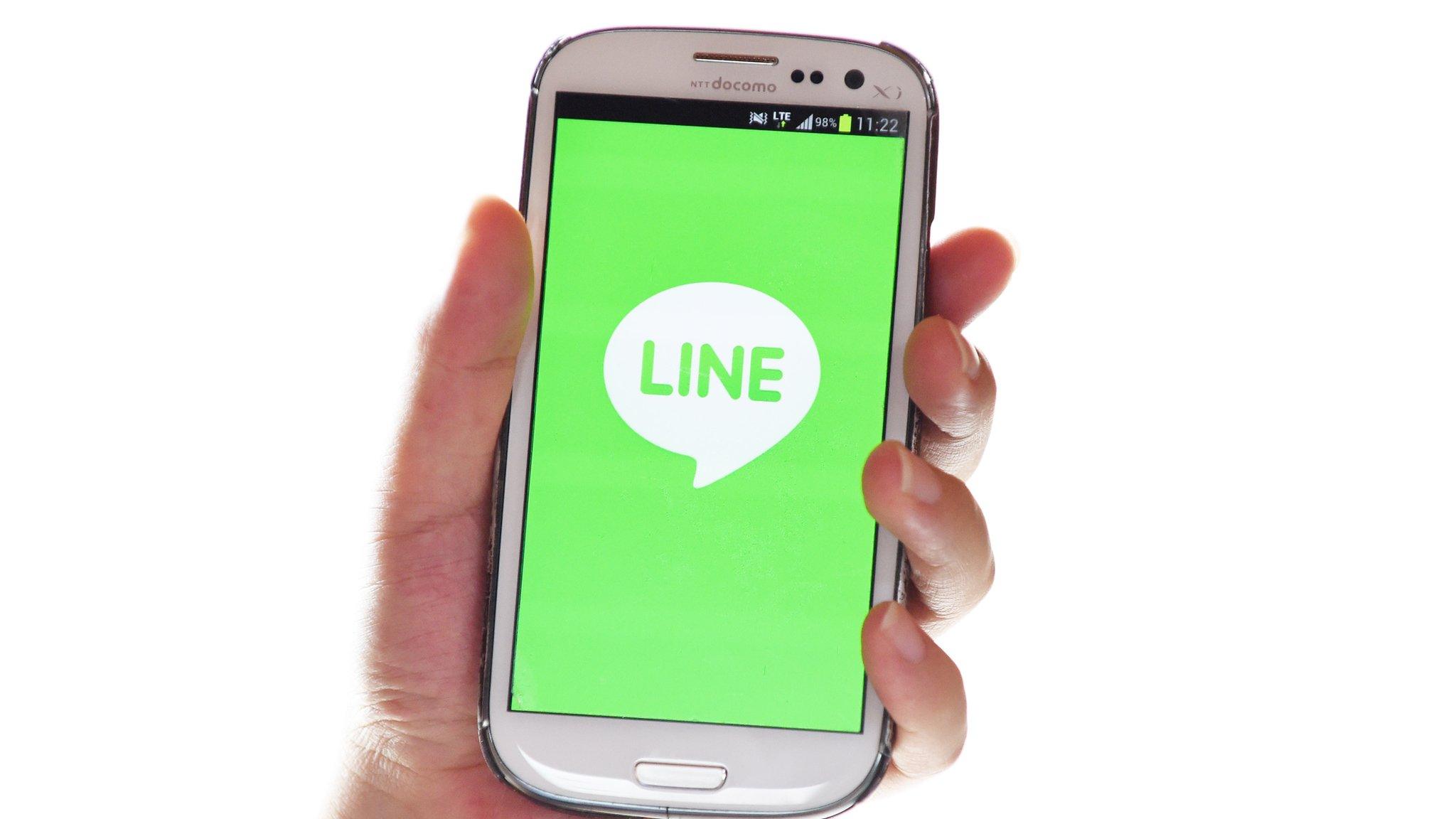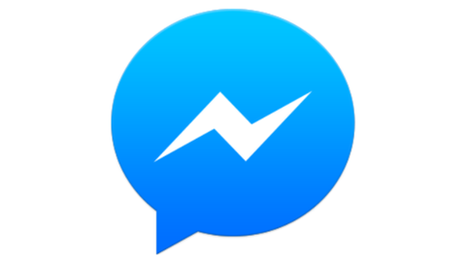Line: A guide to Japan's messenger giant
- Published
What you need to know about Line and its IPO
There's a chance you might not have heard of Line but the Japanese messaging service is set to sell shares for the first time in an initial public offering (IPO) in both New York and Tokyo.
So here's what you need to know.
What is Line?
Line is the most popular messaging app in Japan, Thailand and Taiwan. It is similar to the likes of Whatsapp, Facebook Messenger or WeChat in China.
While it is close to those, it does have some features that set it apart: virtual stickers, cartoon-like animated emojis and games with mascots such as a bear called Brown and his rabbit friend Cony. You can make video calls, stream video or order taxis with it. It also offers a timeline much like Facebook does.
Line has about 218 million monthly active users and makes its money from advertising and selling its virtual stickers and games.
There even are physical Line stores where you can buy merchandise featuring your favourite Line character.

Line is the market leader in several Asian countries
How did it get started?
Line dates back to 2011 when, in the wake of the devastating Japanese tsunami, many of the normal channels of communication had broken down.
The Japanese subsidiary to South Korea's internet giant Naver developed the app as a quick fix for staff to use internet-based communication.
In June that year, Naver released Line for public use and the app quickly came to dominate the market in Japan. It went on to become the leading player in Taiwan and Thailand, and also gained a foothold in many other Asian countries.
What do we know about the IPO?
The company is set to raise up to $1.3bn (£1bn) when it lists its shares, after setting its flotation price at 3,300 yen ($33; £25) per share.
It's being described as Japan's biggest tech IPO of the year but in fact it could have been significantly bigger. When Line was scheduled for an initial public offering two years ago, there was talk of a valuation of more than $10bn.
But that was at a time when the user base was still growing at record pace, and those days are over.
The shares will be launched in a dual offering in New York and Tokyo on 14 and 15 July.
Line is looking to raise funds to expand into the US and help it compete with rivals Facebook Messenger, WhatsApp and WeChat.

Thailand is one of Line's strongholds
Is it a safe investment?
Line is the market leader in a number of Asian countries. Yet analysts are hesitant when it comes to the company's outlook. "Line is struggling to grow its user base," tech analyst Andrew Milroy of Frost & Sullivan told the BBC.
Last year, it gained 13 million new users, an increase of just 6%.
But the company does make money.
Users buy stickers, animated emojis and pay for games. There's also money coming in from advertising. Revenue grew by 40% in the last year.
Yet breaking into markets where there is already a dominant messenger app is extremely difficult. If all your friends are already on WeChat or Facebook, why would you switch to a new messenger?
"It has so far struggled to get out of the markets of Japan, Thailand, Taiwan," Mr Milroy explains. And while it could enter South East Asia markets like the Philippines or Indonesia, making money in those markets is "more challenging", he says.
- Published11 July 2016

- Published10 June 2016

- Published6 June 2016

- Published6 April 2016